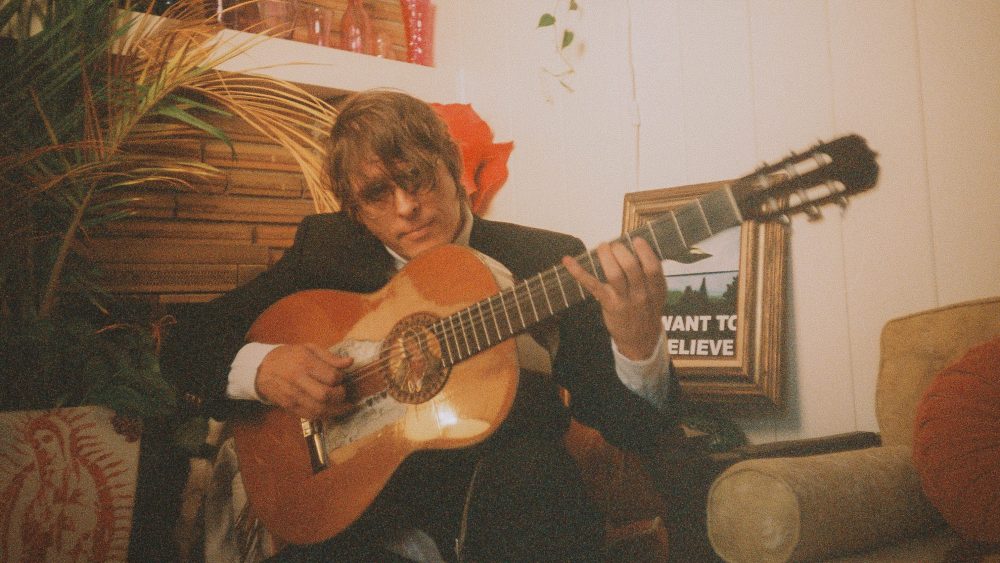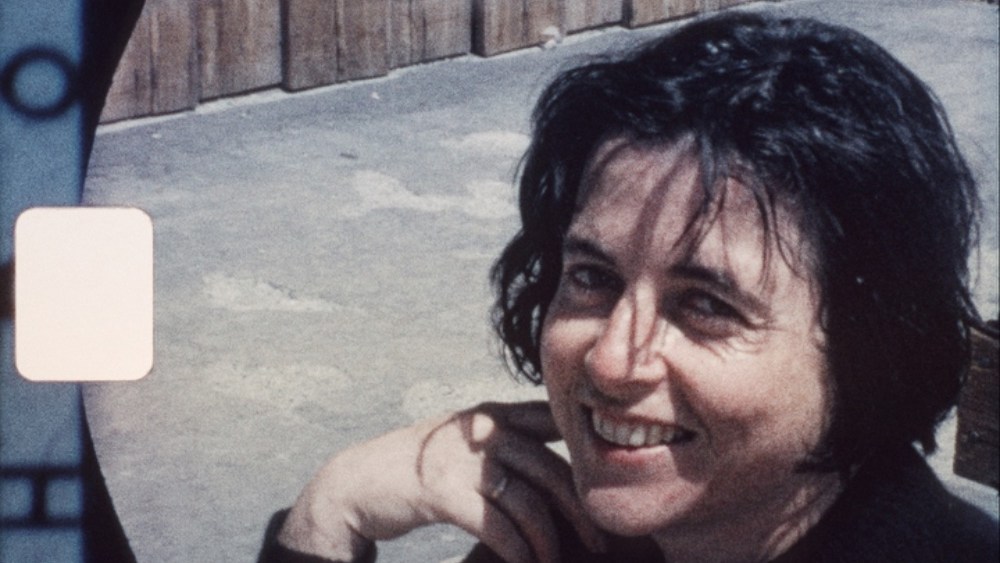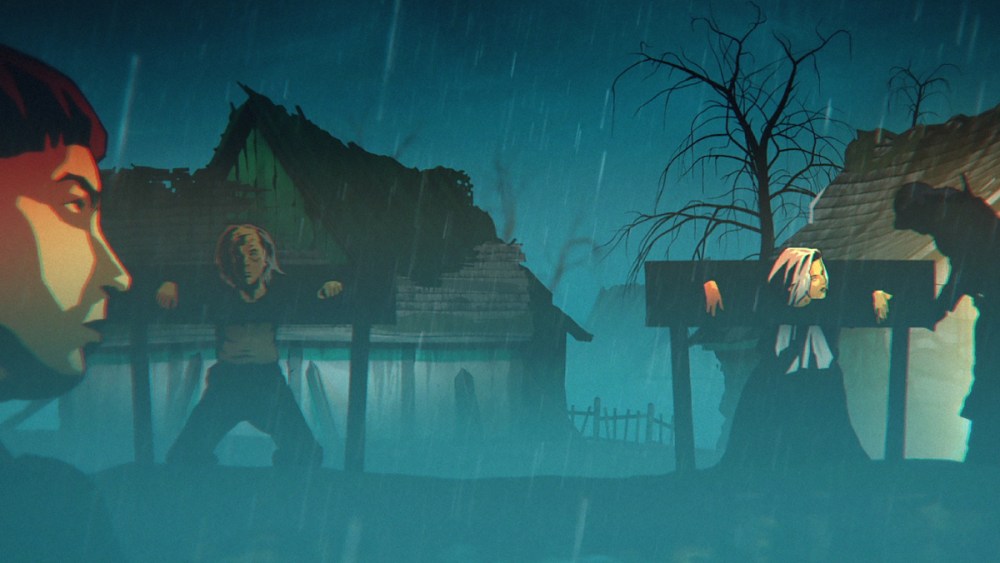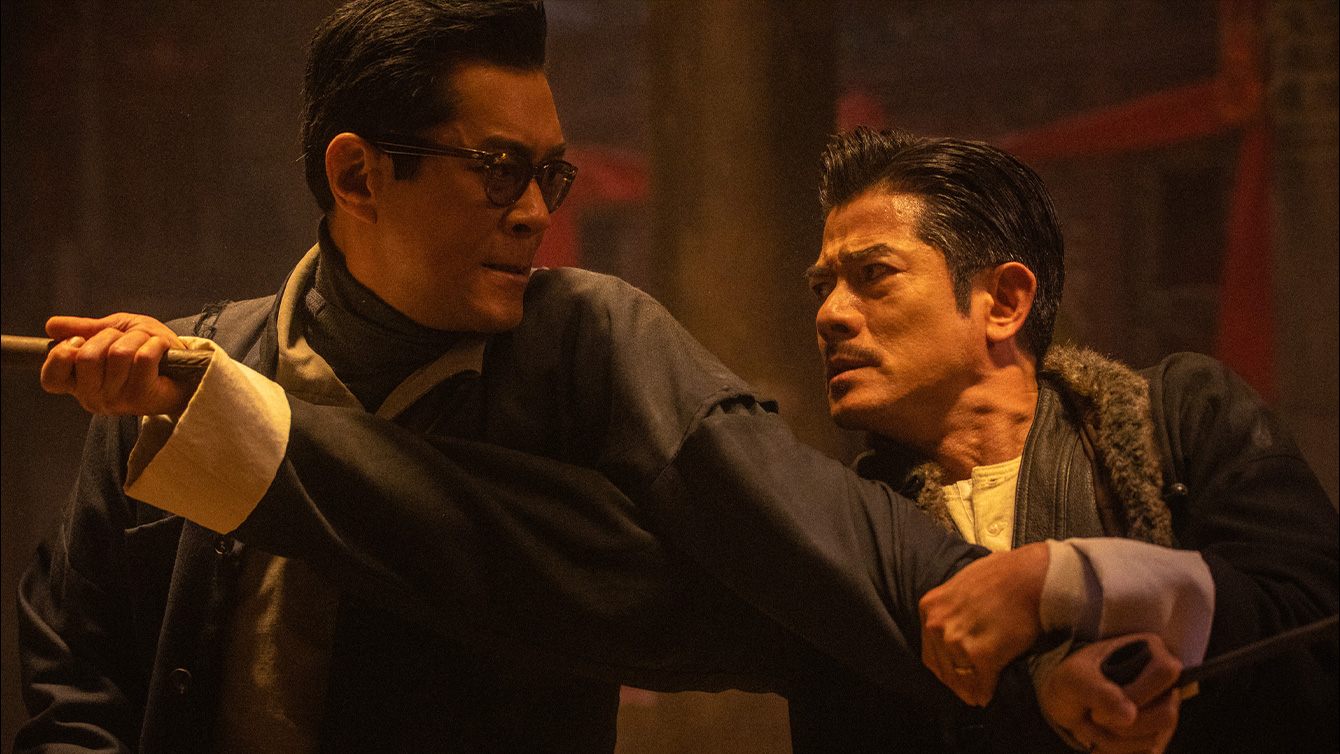Stephen Wilson Jr. on His ‘Death Cab for Country’ Sound and Big Loud
Among this year’s CMA Awards nominees, there are a few slightly outside-the-box contenders that may leave the casual listener and maybe even a genre aficionado wondering: “Wait, are they an outlier, or are they really an in-lier?” That isn’t truer of anybody than Stephen Wilson Jr., a best new artist candidate whose two-year-old Big Loud Records debut still has him on the ascent. On the one hand, he just followed that debut up with an EP of grunge-rock covers, which would indicate a left-of-center lean… and on the other, he insists he’s a hardcore Opry lover who desires nothing greater than to become a staple of country radio.
Wilson came up for considerable discussion when Variety engaged Big Loud toppers Seth England, Joey Moi and Craig Wiseman for an extended interview going deep into their history on the occasion of the label’s 10-year anniversary. While plenty of that conversation was devoted to the imprint’s rise — and, inevitably, to Morgan Wallen — it drifted almost that inevitably to Wilson and what he might represent as part of Big Loud’s (and the genre’s) future. In this sidebar, we take a more detailed look at what Wilson and the label might mean to one another.
The fact that Big Loud is not just open to rock ‘n’ roll sounds but has an actual sub-label called Big Loud Rock was appealing to Wilson, when he was considering different labels as a place to land “Son of Dad,” a 22-song debut that he recorded on his own. But it was by no means the main reason he was attracted to them.
Says Wilson: “It’s obvious there is a rock contingent within our sound — it’s undeniable — and them having a rock label and having artists like Hardy that had successfully pivoted between country and rock ‘n’ roll made it even more like an obvious fit. You know, I’m not some obvious genre artistm and they tend to adopt those kind of, genre rejects of Nashville and really kind of nurture them, and know how to kind of cross all the genres.
“But a big reason why I went with Big Loud was because they are a country label. There’s a lot of rock and Americana labels out there that are just not country labels at all. And I really wanted to start with country first — knowing that the path of most resistance for me (commercially) might be country. I wanted to start there, because I knew this is going to be the hardest mountain for me to climb, and perhaps the other ones will be a little bit more achievable. Just from a challenge standpoint, this genre was my goal.
“And I truly believe I am a country artist,” he continues. “I write country songs, whether I sound country enough, which is entirely subjective. What I don’t think is subjective is that I write country songs. I argue that I am a country person and always have been, always will be. I very much grew up in that life — yet my paintbrush has always been a little bit more Seattle than Nashville. In how I paint the songs, it has a little bit more of that edge, mixed with kind of Appalachia bluegrass from where I come from. The sound of the Pacific Northwest somehow really fused into what I like, because I played in an indie rock band, where I was a lead guitar player. A lot of the songs that I would write were always kind of too country. I’d have to write real abstractly for that kind of music, which I always loved, too — it was a fun exercise. But I really always truly wanted to write story songs, but paint them in a kind of indie-rock kind of style of music.
“And so that’s why I kind of call it Death Cab for Country, jokingly,” Wilson says, “because that’s the best way I can kind of put what I do. But if I’m Death Cab for Country, I’m definitely a country artist and therefore I need to work within a country label that actually knows how to work country artists, because I see myself on country radio. I know a lot of people probably don’t, but I do, and Big Loud does too as well. I love that they’ve always been willing to shake things up and move the goalposts around the field and stretch the membrane of what is possible in this genre. So I like being just another perhaps experiment of theirs, to see if we can do this. And I think they’re fully equipped, and I think we are fully equipped on our side, and I don’t think we could have a better army of, people trying to accomplish what we’re actually trying to accomplish.”
Stephen Wilson Jr.
Acacia Evans
Big Loud has high hopes for the further exposure Wilson will get during CMAs week, starting with the ABC telecast itself, where the singer is getting two performance slots — one to sing his cover of Ben E. Lee’s classic “Stand by Me,” the other to join Shaboozey for “Took a Walk,” their theme song from the recent Stephen King-based film “The Long Walk.” Neither one of those is his actual new single, “Gary,” from a sophomore album that will come out next year, but many viewers will catch a broadcast premiere of that tune on late night TV the night before.
Says England, “We have big hopes and (are engaging) marketing, promotion and digital and havuing many conversations internally about trying to turn that awards week into Stephen Wilson week. We’ve got two performances on the show, and the night before, he debuts his new single on Kimmel. So we’ve pre-requested that our young digital team is gonna work between 1 and 3 a.m. and hopefully you’re waking up and can’t escape Stephen Wilson that week.”
Notes Moi: “Stephen is having an incredibly special moment. I remember when Craig played me the very first Stephen Wilson Jr. demo I ever heard years ago, back when I first started coming to Nashville, and we were all obsessed with his voice back then, when he was just a songwriter figuring stuff out. So, when our new A&R guy, Nate Yetton, came on and he had revealed that Stephen had gone and made a 22-song record, we were just like, ‘Wait, what? He’s an artist now? This is incredible.’ So to see the record take off and do what it’s doing is pretty magical. He is one of the sweetest guys we’ve ever met; he’s insanely humble. Anytime you start talking to him about his career, he kind of wilts into a little shell and he gets so uncomfortable when you talk about how awesome he’s doing, and that makes it even more fun. So we all keep doubling down and complimenting him. But you’re seeing an insanely organic fan base kind of come in and stay. You know, I think he’s got like Dave Matthews potential — he can go on and just release music and be huge forever.”

Stephen Wilson Jr., signing photo with Big Loud Records
Big Loud
Wiseman points out how long many of them have known Wilson, even though he didn’t evidence any aspirations at the time to do anything beyond being a songwriter. “I’ve been writing with Stephen probably since about 2015, 2016. Such a genuine talent, such a great writer and such a great voice. What’s really cool about him, he’s not the sexy Morgan Wallen type guy or whatever who just easily kind of fits that thing, he’s his own guy. And for everybody to start getting that, that makes it so special.”
Although Wiseman describes Wilson as being a bit of a shrinking violet when too many compliments come his way, he is hardly the shy type when it comes to standing up for his vision of what his own music should be, as opposed to the hundreds of songs he co-wrote for hire. But the “Son of Dad” project was beyond personal to him, so there would be no compromising that when he went label-shopping. The album title gets at — but really just barely begins to get at — how personal the project was for him.
“My dad died and he left me this $3,333.33 life insurance check. It’s the only thing I got from him, and a necklace. And I spent every penny recording the first three songs, and then one of those songs blew up online, called ‘Year to Be Young ’94.’ And then I used the money from that, which was seeded from the original life insurance check, to record 19 more songs, and that’s what “Son of Dad” was. It was not about some hit record or getting bops or getting streams or getting playlists. I really just didn’t care about any of that, and I was very vocal about it, even though I wanted it to succeed, because the songs really helped me, as they were.
“When my. dad died, it was colossal. It was devastating, to the point where I didn’t even know if I wanted to live anymore. It was completely destructive. And as a scientist — I used to be a scientist in my former life (for a food manufacturer) — I just kind of went into research mode and kind of went to work it. Either that or I’d just wither up and die. So I was going around town showing these people this 22-song record that was seeded by my dad’s death. And I don’t think anybody really got that but Big Loud.
“Seth England has been a friend of mine because I had quit my job as a scientist to be a staff writer, and he was hearing a lot of my demos and hearing my voice a lot. He’s familiar with what I do. But when my dad died, everything changed. I think he could see that switch, that there was like a true transformation within me, and I think he recognized it instantly. For Nate Yetton, I was the first artist he signed there, and I was the first artist he brought to them. That meant a lot too, because he saw something very special. He was like, ‘No, this is my flagship artist,’ and I didn’t really have a lot of A&R people doing that with me. I was just maybe this cool artist that they wanted to maybe chat about on the side that definitely wasn’t the ‘Hey, I want to go to war with this guy’ kind of artist. I was just kind of maybe a novelty piece to them, and to Big Loud, I wasn’t a novelty piece. They saw like how important this was to me — it was bigger than me and bigger than Spotify metrics. It was rooted in something very, very, very real. So that’s what sold me on Big Loud.
“There really wasn’t a lot to debate. It was like, no, they truly get it and they want to support that, and that’s what exactly what they did. The story itself and the songs were enough, and what it needed was a good support system to nurture it — not alter it, not make it more consumable. It was already what it was. And everybody else’s mind (at other labels), there was so much to change… short story long.”
He might as well have been signed to the label, he’d already spent so much time there. “I was pitching a lot of songs to their artists, and I think I was in that Big Loud building at least one day a week 52 weeks a year. It was almost like a second home for me. I knew everybody in that building. So when I walked in there as an artist to be potentially signed, it was almost like you’re coming to a place that is extremely familiar, almost home. And Seth and Joey and Craig have all been big fans of my artistry long before I even knew my artistry existed. It just kind of took time for the whole thing to make sense for them to get behind it. That’s because I had to do my part — I had to take my chance.
“I think once they saw that it was more than just a pipe dream or more than just like this guy doing a novelty songwriter record — because that happens all the time where songwriters do a little record, and it does things, but it’s really kind of a vanity piece… I think they quickly identified, ‘He’s not trying to do that. He’s actually going for it.’ And that’s when I think things started getting very serious.
“I’d written probably 30, 40 songs with Craig Wiseman as a staff writer… and this was (starting in) 2016. I did not want to be an artist. It wasn’t even on the table. It’s not that I was anti- being an artist, it just wasn’t even a conversation that was … yeah, it was a non-conversation. … You know, writing with Craig is its own experience. It’s not like any other writing room. And he truly is a one of a kind and I’ve learned so much from writing with him. We actually wrote a song on ‘Son of Dad’ called ‘Holler from the Holler’ together, so he got a cut on the record too, I guess you would say.
“I kind of went to songwriting school with Craig, because he has his own process. He runs words through a mill in his mind. And I’ve worked with so many other Hall of Fame songwriters and saw how their processes work. So he was just one chapter of the songwriting class that I got for the first five or six years. Craig and I were just trying to get cuts on Blake Shelton or Kenny Chesney. We weren’t trying to get cuts on my record because my artistry didn’t exist. But from day one, literally when I walked in the room, he’d go, ‘All right, man, you’re the artist in the room.’ And I would always be like, ‘What do you mean by that?’ And he’s like, ‘You’re the artist’ — that means we’re gonna write a song and he’s not gonna sing it, I’m gonna sing it. And he sang plenty of demos and he’s great at doing it. But he designates the artist in the room. So I remember when he said that to me; it’s almost like he just planted a seed from day one, and I didn’t even know he did it. It’s like he did it behind my back. And then, you know, 30 songs later of me being the artist in the room, suddenly you start sounding like an artist outside of the room. That’s what Craig did for me.”
Share this content:




Publicar comentário